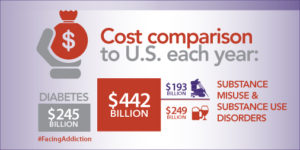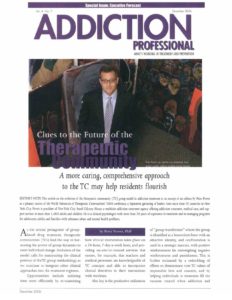Odyssey House has opened a full-service dental clinic for men, women, and children in treatment for substance abuse problems. The community-based clinic, located at the Odyssey House Family Center of Excellence in East Harlem, will provide high quality dental services in a residential environment conducive to the needs of individuals in recovery from drug and alcohol abuse.
Most substance abusers suffer from multiple correlates of addiction such as poverty, homelessness, and unemployment – all conditions that make it difficult to prioritize dental health. Individuals struggling with addiction often have a long history of improper cleaning, missing regular check ups, and an overall lack of oral health education which can lead to severe gum problems, numerous cavities, underlying bone tissue damage, and other serious dental disorders.
“This population needs immediate dental care and oral health education geared to their special needs,” said Dr. Peter Provet, president of Odyssey House. “Pain-free healthy gums and teeth not only help restore a person’s dignity and self esteem, they can also be lifesaving because poor oral health is linked to a higher risk for developing heart disease, stroke, uncontrolled diabetes, preterm births and respiratory disease.”
“This new clinic,” adds Dr. Provet, “will also address the problem of dental phobia, a condition that is believed to affect between 9-15 percent of the population. The dental team will focus on reducing anxiety associated with going to the dentist though pre-treatment counseling, relaxation exercises, and the use of wall-mounted television/DVDs for patients undergoing procedures that can be programmed to suit all ages, from preschoolers to senior citizens.”
The dental clinic will emphasize preventative screenings for early identification of dental problems, maintenance of dental health, and monitoring and developing treatment plans for follow up of chronic and urgent conditions. Some services include: routine check ups, oral examinations and evaluations; oral hygiene instruction; oral cancer screening; dental sealants; crowns and bridges; repairing cavities; performing simple extractions; and referral and coordination of specialty care.
The clinic will also provide pediatric dentistry services and oral health education for the children and families in Odyssey House’s Family Center programs. As many as 100 children live at Odyssey House while their mother or father is in treatment.
ElderCare Dental Program
The new clinic is also the site of an innovative dental program that will seek to address the specific needs of senior citizens in residential and outpatient treatment. With the support of a $120,000 grant from the Fan Fox and Leslie R. Samuels Foundation, Inc., the dental team will:
• Treat presenting problems. Provide initial and follow-up dental examinations and treatment as indicated, in a culturally sensitive and age-appropriate manner. The patient will be educated as to the importance of prompt care and maintenance to avoid emergency treatment.
• Prevent future problems by increasing awareness of the importance of proper oral care. Many of the senior citizens in treatment at Odyssey House have a long history of neglecting their oral health, considering it a low priority. Part of the focus of the ElderCare Dental Program will be to reverse this thinking and emphasize how poor oral health affects other body systems.
• Teach age-appropriate dental care practices. Education will focus on dental topics affecting older adults and practical advice. The structured routines in the residential facilities will allow elders to initiate and practice good oral health behavior.


 It can’t go on. The death rate from what is a preventable, and treatable disease, is unconscionable. The financial costs are unsustainable.
It can’t go on. The death rate from what is a preventable, and treatable disease, is unconscionable. The financial costs are unsustainable.

